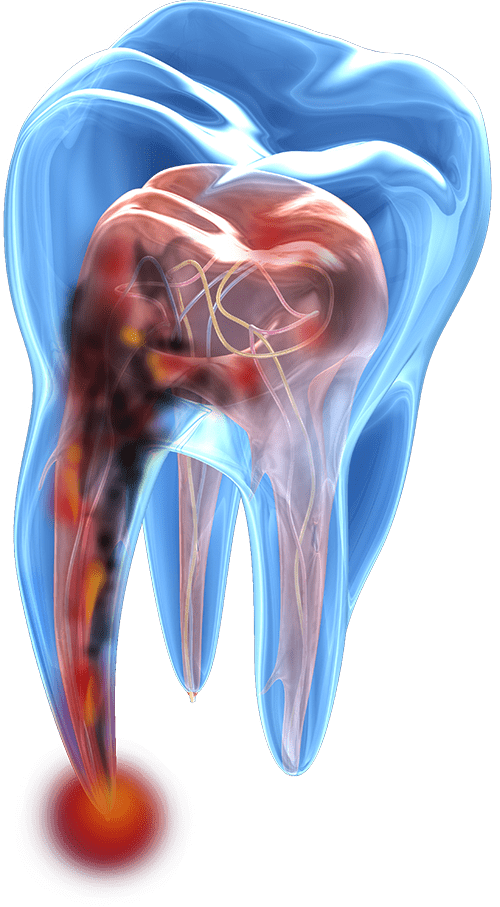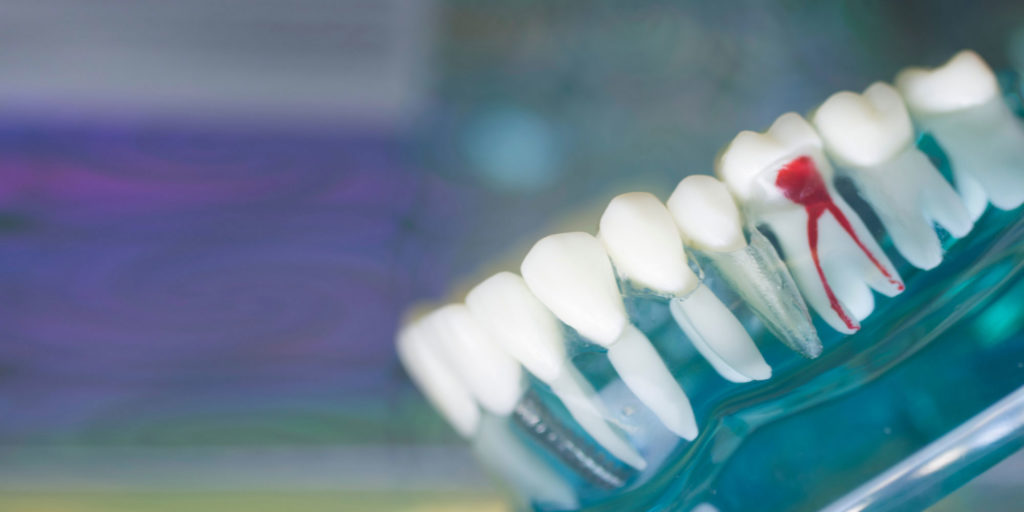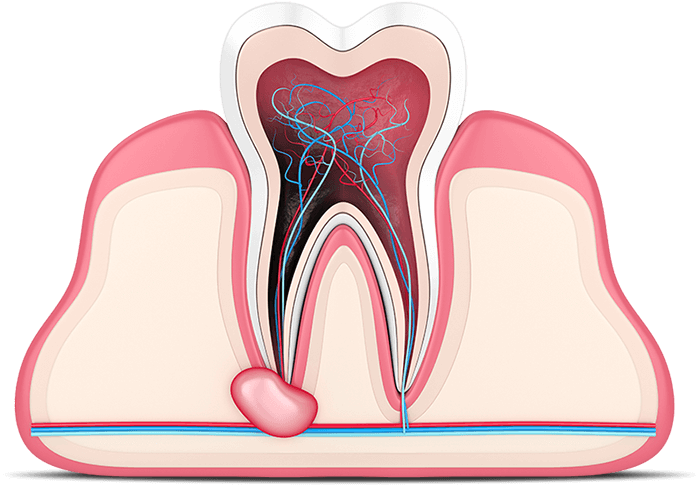


About 15 million teeth are saved every year with root canal treatment. A root canal is necessary when the pulp of a tooth becomes inflamed or infected. If pulp infection is left untreated, this can cause severe pain and/or lead to an abscess. While the perception that root canals are painful began decades ago, advances in dental technology have resulted in root canals that are no more uncomfortable than having a cavity filled. At Dental Group NY, we strive to change what patients think about root canal treatment by using technologies that enable a painless approach while also alleviating dental anxiety. During a root canal in our The Bronx & Queens, NY office, our highly skilled oral surgeon removes the infected pulp and nerve in your tooth root, cleans and shapes the inside of the root canal, then fills and seals the space.



When pulp inside your tooth root becomes infected, the pulp and bacteria must be removed to save your tooth, oral health and overall health. During a root canal in Bronx & Queens, NY, our oral surgeon first numbs the treatment site with a local anesthetic. If you suffer from dental anxiety or need additional sedation, we offer diverse sedation options. Either way, you won’t feel any pain, although you may experience slight pressure as we complete the procedure.
We drill a small hole in your tooth crown to gain access to the pulp chamber and carefully clean out all the bacteria and infected pulp and tissues. Then we fill and seal the end with a rubberlike material called gutta-percha. Afterward, the tooth is restored with a crown or filling to protect it and restore normal function. We accept many insurance plans and offer third-party financing to ensure your treatment is both painless and affordable.

When our oral surgeon performs a root canal in The Bronx & Queens, NY, this will enable you to live a comfortable and functional life free of tooth pain. The benefits of root canal treatment include:

I understand the information disclosed in this form may be subject to re-disclosure and may no longer be protected by HIPAA privacy regulations and the HITECH Act.
